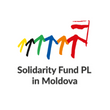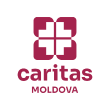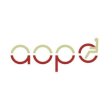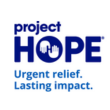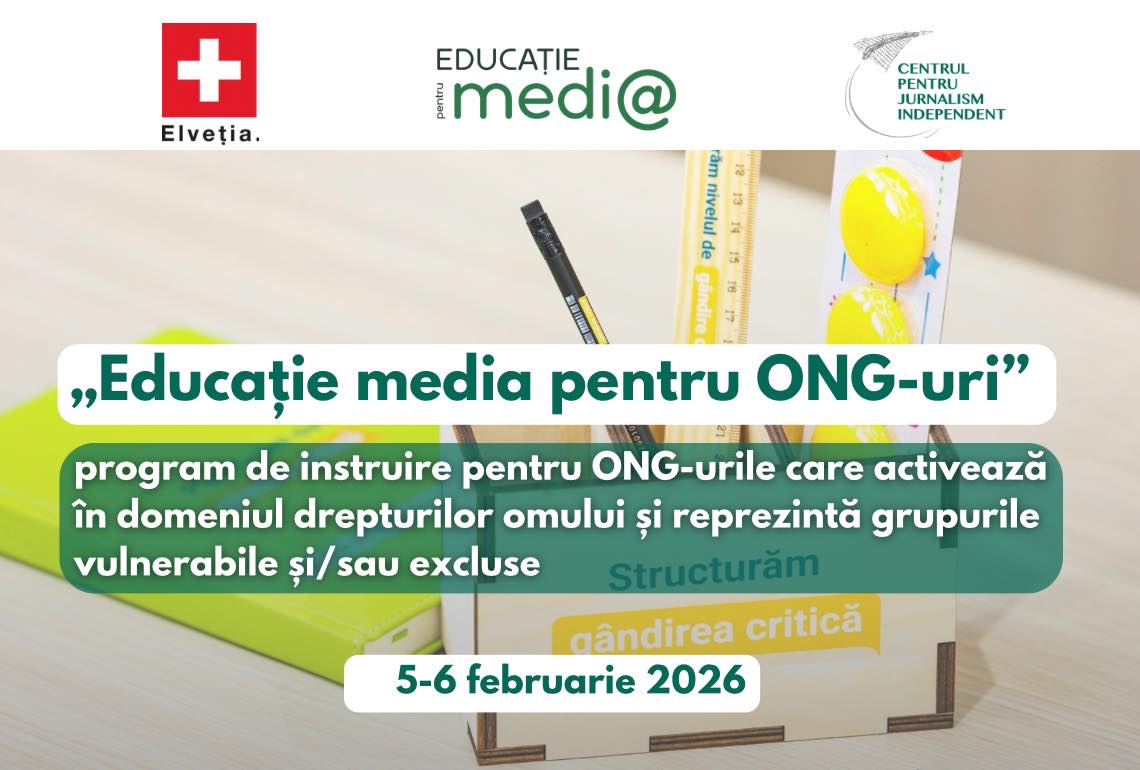Organizații vizate:
Granturi și Finanțări
- Detalii
- Categorie: Granturi
EU/GIZ Call for concepts for the implementation of the Investigative Journalism Grant Program “Increasing the capacities of investigative journalists and of local media in monitoring and investigating corruption cases"
Informațiile prezentate în articolul de mai jos pot să nu mai fie actuale sau să nu mai reflecte activitățile și programele curente. Anunțul este păstrat în arhivă pentru a asigura transparența și accesul public la informațiile despre inițiativele și proiectele implementate anterior.
- Are you one of the Civil Society Organisations (CSOs) that has general knowledge and expertise on corruption related issues and processes, investigative journalism skills and challenges?
- Do you have a strong network and coverage among journalists in all the regions of Moldova (North, Centre, South and UTA Găgăuzia)?
- Can you contribute to increasing the investigative journalists’ role, in investigating and revealing the truth in high-risk corruption sectors, by building and improving the needed tools and skills?
- Is your organisation experienced in boosting the concepts of integrity, transparency and accountability at the national level?
- Do you have experience in organising public awareness campaigns targeting men and women, youth, older persons, persons with disabilities and other social groups for engagement in decision-making process and transparency at the national level?
- Do you have experience in providing coaching and trainings to journalists at national and local level about investigative journalism, gathering information, working with data and data analysis, etc.?
- Are you familiar with innovative and digital solutions for identifying, investigating and monitoring corruption cases?
General Information
As support to the Moldovan Government’s commitments of improving the effectiveness of state and civil society measures in combatting and preventing corruption in the Republic of Moldova, GIZ is implementing the project “Strengthen the Rule of Law and Anti-Corruption Mechanisms in the Republic of Moldova”, co-funded by the European Union and the German Federal Ministry for Economic Cooperation and Development (BMZ). The objective of the project is to prevent and fight against corruption as well as to develop a zero-tolerance policy against corruption among the citizens of the Republic of Moldova.
The measure shall be focused on strengthening the state institutions tasked with preventing and combating corruption; building and developing partner capacity through initial and in-service training, including organisational and process advice; promoting learning and exchange of information with Germany and other European countries; raising awareness and strengthening civil society, especially at local level; organise supporting activities in regions and sectors which are at high risk of corruption.
Many CSOs are also experienced in mass mobilisation to build in people the necessary degree of awareness in regard to unjust policies, to show governments or businesses alike the strength that lies in their number, as well as to exert pressure on governments and businesses to implement reforms.
In order to develop zero tolerance against corruption among Moldovan citizens, the project aims to engage CSOs and grass root organisations, including at the local level, in various areas such as: participation and monitoring of the decision-making process and of anti-corruption strategies; awareness-raising including on anti-corruption education, cooperation with anti-corruption bodies and prevention of corruption, including the facilitation of citizen's complaint mechanisms, use of new innovative approaches and digitalisation processes.
In a politically neutral way, the programme will support investigative journalism[1][2] by targeted capacity development as well as national and international networking and peer-to-peer exchange formats. Hence, there is a high need to further boost the capacities of investigative journalists in the fields relevant to the implementation of the National Integrity & Anti-Corruption Strategy (NIAS), regarding the high- risk sectors.
The project shall work on two main pathways:
- Raising awareness of citizens
- Strengthening of anti-corruption mechanisms
For achieving the overall objective purpose, the selected CSO shall apply a holistic capacity development approach for supporting the development of:
- Capacity building for investigative journalists, based on a needs assessment to increase the quality of investigation and reporting especially on anti-corruption and organized crime topics.
- Supporting networking, teamwork and international contacts of investigative journalists, building solidarity among them.
The potential grant beneficiary is expected to develop and submit a concept that would contribute to the overall project goals as mentioned above, both as a separate entity or as part of a consortium partnership.
After the selection process described below, GIZ will award a grant to one CSO/consortium that will implement the tasks listed under “Roles and tasks of selected CSO”, at national level.
|
Deadline for application: |
For application of concept note: two weeks after announcement For the complete proposal: 3 weeks after evaluation/approval of concept notes |
|
Expected award date: |
(November 2022) |
|
Expected project duration: |
12 months |
|
Award amounts: |
EUR 200.000 |
|
Funding instrument type: |
Grant Agreement |
The projects proposed are to be fully implemented nationwide in the Republic of Moldova. Overall, the project should be finalized not later than 12 months since the conclusion of the grant agreement.
The final amount of the grant awarded to the selected CSO shall be determined based on the review of the proposed results and activities, the number of targeted audience and active national & local CSOs, journalists, investigative journalists and students involved.
Potential beneficiaries
We are looking for civil society organisations, preferably consortiums, with:
- substantial experience in the implementation of capacity building for investigative journalists;
- capacity to network and/or cooperate with other civil society organisations at regional and national level
- experience in development and implementation of innovative investigative means and digital solutions.
The potential applicants must also:
- be able to act, according to their statutes/regulations, in the fields addressed by the project;
- be independent from government and other public authorities, political parties or any other interest groups that might affect their independence, and
- be directly responsible for the preparation and management of the project with their partners, not acting as an intermediary.
Applications from consortiums/partnerships between two or more organisations are strongly encouraged, if they do strengthen the cooperation and communication among Moldovan investigative journalists and therefore contribute to the strengthening of the impact of media and especially investigative journalism in Moldova, developing new approaches in the anti-corruption preventive and fighting measures. In this case, preference will be given to consortiums/partnerships where one of the applicants is the organisation registered and actively working at regional level.
All consortium/partnership members will comply with the eligibility criteria listed above.
Specific objectives:
- Increasing the quality of investigation and reporting on corruption cases by capacity building of investigative journalists at national and local level and by providing international networking & expertise.
- Conducting investigative articles on corruption cases in specific high-risk sectors (education, public health, social assistance and agri-food) of national and local interest.
- Raising public awareness aiming to prevent corruption among citizens and increase the media coverage of corruption cases.
Roles and tasks of selected CSOs
The selected organisations will be granted to ensure the following activities under the specific Objective 1:
- Organize trainings and workshops to at least 30 investigative journalists at national and local level (representing 50% women) and/or specialized local media on conducting investigations on corruption cases providing specific methodology to tackle corruption at local level and by using adequate photo/video/recording equipment as well as its effect on women and vulnerable groups, especially in sectors of high-risk of corruption, such as: education, public health, social assistance and agri-food sector;
- Provide networking expertise to investigative journalists at national and local level (representing 50% women) and/or specialized local media on conducting investigations on corruption cases providing specific methodology
- Enhance journalists' monitoring capacities through strengthening of local media for participation of journalists in anti-corruption measures; by transfer of experience, knowledge and good practice from well-known national and international investigative journalists;
- Provide legal assistance for the involved investigative journalists and provide trainings on journalists’ rights and methods of legal self-defence.
The selected organisations will be granted to ensure the following under the specific Objective 2:
- Monitoring multiple investigations at national and local level on corruption cases, especially in high-risk sectors such as: education, public health, social assistance and agri-food sector;
- Provide the investigative journalists with access to databases at national and international level for the investigations;
- Organise 2 annual competitions for the best investigative articles,
- Make use of the existing Corruption Radar[3] application – a national-wide, digital-first, mobile survey to understand citizens’ perception and experience with corruption – viewing to organise participatory platforms and targeted surveys.
The selected organisations will be granted to ensure the following under the specific Objective 3:
- Conduct media monitoring to increase coverage of corruption & integrity aspects;
- Raise awareness among public servants on the role of the media in investigating and uncovering corruption cases in public institutions;
- Ensure nationwide media coverage of the investigative articles on corruption cases, written as a result of the awarded grant.
Expected results:
In line with the Project’s indicators the following results are to be achieved for the specific objectives above:
- Increased citizens' perception of media reporting about cases of corruption and anti-corruption measures and reforms.
- Media monitoring to define coverage of corruption & integrity aspects performed.
- Increased investigative journalists’ cooperation with the Anti-corruption agencies (esp. National Anti-Corruption Centre, Anti-Corruption Prosecutor's Office, Prosecutor's Office on Organised Crime and Special Causes, Centre for Criminal Assets Recovery Agency, National Integrity Authority).
- Increased citizens’ awareness of corruption cases, (especially in high-risk sectors, such as education, public health, social assistance and agri-food) and mechanisms for reporting and for preventing and combating corruption in these sectors.
- Increased awareness among civil servants and other state representatives of the role of the media in investigating and uncovering corruption cases.
- At least 30 journalists (50% women) trained and instructed in investigative journalism and are prepared to apply these in practice.
- Increased journalists’ capacities of monitoring and reporting corruption cases.
- At least 3 investigative articles on corruption cases at national and/or local level conducted and published.
- At least 1 annual competition for the best investigative articles organized and winners awarded
- A complete package of all the investigations and reporting was published (video, guide, book, etc.).
The work of the selected CSO, will be regulated by the respective Operation Manual issued by the “Strengthen the Rule of Law and Anti-corruption Mechanisms in the Republic of Moldova” project.
The selection process shall consist of two phases:
- Submission, Evaluation and Shortlisting of concept proposals, containing innovative ideas and approaches with regard to the implementation of the main objectives of the call. During the first phase, the priority will be given to the quality of the concepts and the innovative ideas and approaches that are tailored to the main objectives of the call and methods of their implementation. Only shortlisted concept proposals will be carried forward to the second phase. Please, see the requirements for the format of the Concept Note in the Application Process section.
- Submission and Evaluation of full proposals (including action plans, expected results, budget, etc). During the second phase of the evaluation process, based on the shortlisted concept proposals, the evaluation committee is entitled to recommend the merger of proposals thus aiming to create a synergy between the proposed innovative ideas and approaches and the specific capacity and expertise to implement similar projects.
The selection of proposals shall commence upon completion of the submission procedure. Extension of the deadline could be considered, but it’s not guaranteed, thus all applicants are encouraged to fit in the proposed deadlines. Selection will be based on principles of merit, transparency, equality and rational use of funds. Priority shall be given and may be recommended to a consortium of applicants (2 or more organisations).
The applicants will be shortlisted based on the following minimum eligibility criteria:
|
# |
Criteria |
Criteria met |
|
|
Yes |
No |
||
|
1. |
At least five (5) years of experience in investigative journalism |
□ |
□ |
|
2. |
Proven experience in development and implementation of training programs and/or technical assistance for investigative journalists and local media |
□ |
□ |
|
3. |
Proven experience in stimulating journalists’ engagement/participation in transparency and accountability of decision making at national and local level |
□ |
□ |
|
4. |
Registration and/or functioning office in one of the regions of Moldova, as advantage |
□ |
□ |
Only those applications that meet all formal requirements and eligibility criteria specified above will be evaluated based on the award criteria. The other proposals will be excluded from further procedures.
The organisations to be awarded with a grant will be selected from the shortlisted applicants as result of evaluation of the project proposals based on the following award criteria:
|
# |
Description |
% |
|
1. |
Understanding of the mandate and general approach - the proposal is relevant to the objectives of the current grant award |
20 |
|
2. |
The approach and proposed strategy contributing to empowerment of investigative journalists that improve the transparency and accountability of decision-making processes at national and local levels through investigation and reporting |
20 |
|
3. |
The proposal contributes to strengthening of networking and coordination of investigative journalists at the regional, national and international levels, as well as provides access to relevant data |
15 |
|
4. |
The proposal’s activities and methodology are likely to deliver the expected results nationwide, implemented by the organization(s). In case of a consortium approach, a defined role of each organization is provided |
15 |
|
5. |
The proposal provides for a systemic and sustainable impact |
10 |
|
6. |
The proposal budget is realistic, logically related to the objectives and activities |
10 |
|
7. |
The proposed organisation’s team (consortium) displays sufficient capacities, experience and skills related to the implementation of the proposal’s objectives. |
10 |
Application process:
Phase 1
The applicant organisation shall submit a Concept Note which should include:
- Objectives
- Methodology
- Expected results
The presentation and description of the above sections in an innovative and creative way will be highly appreciated. The Concept Note will be no longer than 2 pages A4.
Only the shortlisted Concepts, considering the initial recommendations of the Selection Committee, will be eligible for the Second phase.
Phase 2
The full proposal should include:
- Estimated Budget (Annex 1);
- Project proposal (Annex 2);
- Profile of the organisation (Annex 2(a)) and qualifications of the project team (CVs of team members) including resumes of the project coordinator and involved staff of partner organisations, if applicable;
- The consortium/partnerships: Partnership agreement(s) signed with all organisations involved, indicating their roles in the implementation of the Project;
- Copy of the registration certificate (1-year-old validity) issued by the Agency of Public Services (by both, main applicant and partner organisation);
- Financial reports/statements for the last 3 years;
- Upon submission of the project proposal the applicant shall demonstrate that there are no financial debts (unpaid taxes and fines) to the public authorities.
The Project proposal (Annex 2) shall not exceed 10 pages.
For the cost estimation, the maximum budget shall not exceed the amounts listed above. The proposed budget will have to consider the set limits for the following budget lines:
- Staff – up to 20% of direct costs
- Procurement of goods – up to 25% of direct costs
- Administrative costs – up to 7 % of direct costs
Costs for procurement of equipment are eligible if these are directly contributing to investigative journalists’ equipment for conducting investigations and reporting and are of sustainable nature.
In case of applications submitted by two or more organisations in partnership, the Annex 2(a) “Profile of the organisation” shall be filled in by each organisation. Applications should be submitted in English language. Interested organisations may submit one application only.
|
Concept notes shall be submitted via email at eu4cso-grants@giz.de to the “Strengthen the Rule of Law and Anti-Corruption Mechanisms in the Republic of Moldova” project, not later than 23rd of June, 2022 with the remark “Anti-Corruption Concept Notes application/Investigative Journalism” |
[1] According to UNESCO: „Investigative journalism involves exposing to the public matters that are concealed–either deliberately by someone in a position of power, or accidentally, behind a chaotic mass of facts and circumstances that obscure understanding. It requires using both secret and open sources and documents.”
[2] According to Free Press Unlimited: „ Investigative journalists analyse information and carry out in-depth research to reveal the truth and to shed light on abuses. An investigative journalist looks critically at the facts. Often, he does so for a reason; he may, for example, have received a tip from a whistle-blower within a company or government agency. Or the investigative journalist himself may come across information that does not seem right and decide to investigate it.”
[3] Details about the functions and operational applicability will be presented during the mandatory Information Session carried out before the application.



